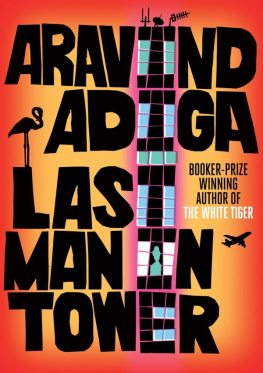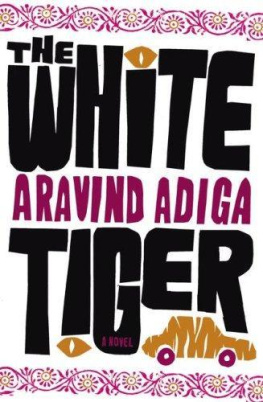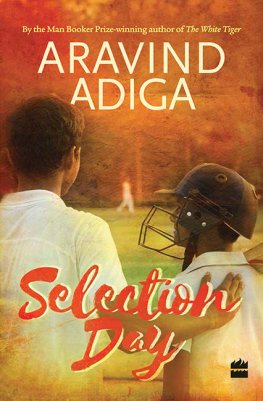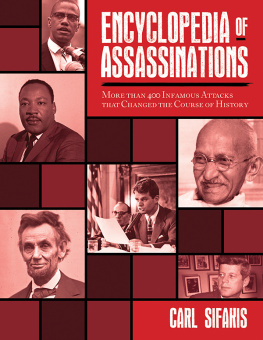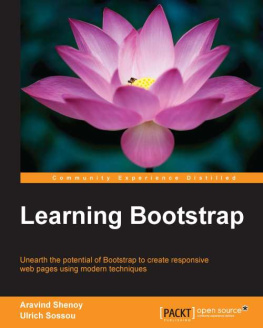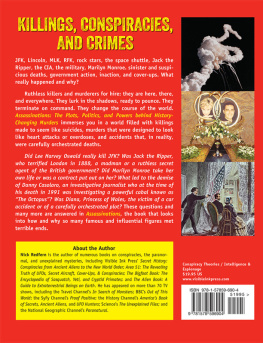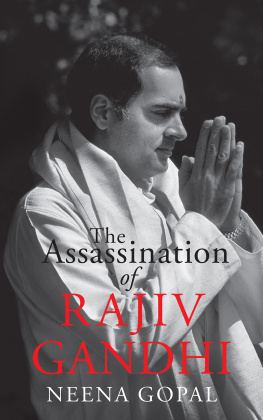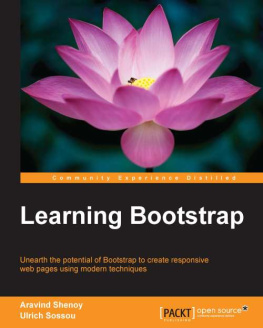
Aravind Adiga
Between the Assassinations
Copyright 2008 by Aravind Adiga

Kittur is on India s southwestern coast, between Goa and Calicut, and almost equidistant from the two. It is bounded by the Arabian Sea to the west, and by the Kaliamma River to the south and east. The terrain of the town is hilly; the soil is black and mildly acidic. The monsoons arrive in June, and besiege the town through September. The following three months are dry and cool, and are the best time to visit Kittur. Given the towns richness of history and scenic beauty, and diversity of religion, race, and language, a minimum stay of a week is recommended.
DAY ONE: THE RAILWAY STATION
The arches of the railway station frame your first view of Kittur as you arrive as a passenger on the Madras Mail (arrival early morning) or the West Coast Express (arrival afternoon). The station is dim, dirty, and littered with discarded lunch bags into which stray dogs poke their noses; in the evening, the rats emerge.
The walls are covered with the image of a jolly, plump, potbellied, and entirely naked man, his genitalia strategically covered by his crossed legs, who floats above a caption in Kannada that says: A SINGLE WORD FROM THIS MAN CAN CHANGE YOUR LIFE. He is the spiritual leader of a local Jain sect that runs a free hospital and lunchroom in the town.
The famous Kittamma Devi Temple, a modern structure built in the Tamil style, stands on the site where an ancient shrine to the goddess is believed to have existed. It is within walking distance of the train station, and is often the first port of call for visitors to the town.
NONE OF THE other shopkeepers near the railway station would hire a Muslim, but Ramanna Shetty, who ran the Ideal Store, a tea-and-samosa place, had told Ziauddin it was okay for him to stay.
Provided he promised to work hard. And keep away from all hanky-panky.
The little dust-covered creature let its bag drop to the ground; a hand went up to its heart.
Im a Muslim, sir. We dont do hanky-panky.
Ziauddin was small and black, with baby fat in his cheeks, and an elfin grin that exposed big, white, rabbity teeth. He boiled tea for the customers in an enormous, pitted stainless-steel kettle, watching with furious concentration as the water seethed, overspilled, and sizzled into the gas flame. Periodically, he dug his palm into one of the battered stainless-steel boxes at his side to toss black tea powder, or a handful of white sugar, or a piece of crushed ginger into the brew. He sucked in his lips, held his breath, and with his left forearm tipped the kettle into a strainer: hot tea dripped through its clogged pores into small, tapering glasses that sat in the slots of a carton originally designed to hold eggs.
Taking the glasses one at a time to the tables, he delighted the rough men who frequented the tea shop by interrupting their conversations with shouts of One-a! Two-a! Three-a- as he slammed the glasses down in front of them. Later, the men would see him squatting by the side of the shop, soaking dishes in a large trough filled with murky bilge water; or wrapping greasy samosas in pages ripped from college trigonometry textbooks so they could be home-delivered; or scooping the gunk of tea leaves out of the strainer; or tightening, with a rusty screwdriver, a loose nail in the back of a chair. When a word was said in English, all work stopped: he would turn around and repeat it at the top of his voice (Sunday-Monday, Good-bye, Sexy!), and the entire shop shook with laughter.
Late one evening, just as Ramanna Shetty was ready to close up, Thimma, a local drunk, who bought three cigarettes every night, roared with delight to see Ziauddin, his butt and thighs pressed against the giant icebox, shoving it back into the shop, inch by inch.
Look at that whippersnapper! Thimma said, clapping. The icebox is bigger than him, but what a fighter he is!
Calling the whippersnapper close, he put a twenty-five-paisa coin in his palm. The little boy looked at the shopkeepers eyes for approval. When Ramanna Shetty nodded, he closed his fist and yelped in English:
Thanks you, sir!
One evening, pressing a hand down on the boys head, Ramanna Shetty brought him over to the drunk and asked, How old do you think he is? Take a guess.
Thimma learned that the whippersnapper was nearly twelve. He was the sixth of eleven children from a farm-laboring family up in the north of the state; as soon as the rains ended, his father had put him on a bus, with instructions to get off at Kittur and walk around the market until someone took him in. They packed him off without even one paisa, Ramanna said. This fellow was left entirely to his own wits.
He again placed a hand on Ziauddins head.
Which, I can tell you, arent much, even for a Muslim!
Ziauddin had made friends with the six other boys who washed dishes and ran Ramannas shop and slept together in a tent they had pitched behind the shop. On Sunday, at noon, Ramanna pulled down the shutters and slowly rode his blue-and-cream-colored Bajaj scooter over to the Kittamma Devi Temple, letting the boys follow on foot. As he entered the temple to offer a coconut to the goddess, they sat around the green cushion of the scooter, discussing the bold red words written in Kannada on the cornice of the temple:
HONOR THY NEIGHBOR, THY GOD.
That means the person in the house next door is your God, one boy theorized.
No, it means God is close to you if you really believe in Him, retorted another.
No, it means, it means- Ziauddin tried to explain.
But they wouldnt let him finish: You cant read or write, you hick!
When Ramanna shouted for them to come into the temple, Ziauddin darted in with the others a few feet, hesitated, and then ran back to the scooter. Im a Muslim, I cant go in.
He had said the word in English, and with such solemnity that the other boys were silent for a moment, and then grinned.
A week before the rains were due to start, the boy collected his bundle and said, Im going home. He was going to his duty to his family, to work alongside his father and mother and brothers, weeding or sowing or harvesting some rich mans fields for a few rupees a day. Ramanna gave him an extra of five rupees (minus ten paise for each of two bottles of Thums Up he had broken), to make sure he would return from his village.
Four months later, when Ziauddin came back, he had developed vitiligo, and pink skin streaked his lips and speckled his fingers and earlobes. The baby fat in his face had evaporated over the summer; he returned lean and sunburned, and with a wildness in his eyes.
What happened to you? Ramanna demanded, after releasing him from a hug. You were supposed to come back a month and a half ago.
Nothing happened, the boy said, rubbing a finger over his discolored lips.
Ramanna ordered a plate of food at once; Ziauddin grabbed it and stuffed his face like a little animal, and the shopkeeper had to say, Didnt they feed you anything back home?
The whippersnapper was displayed to all the customers, many of whom had been asking for him for months; some who had drifted to the newer and cleaner tea shops opening up around the train station came back to Ramannas place just to see him. At night, Thimma hugged him several times, and then slipped him two twenty-five-paisa coins, which Ziauddin accepted silently, sliding them into his trousers. Ramanna shouted to the drunk, Dont leave him tips! Hes become a thief!
Next page

